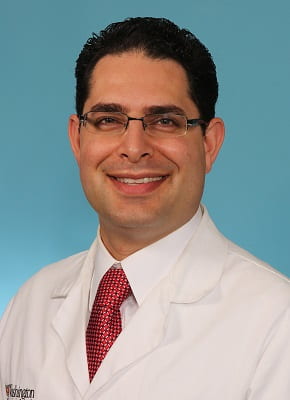
Appointments
- Associate Professor of Medicine, Cardiovascular Division
Research interests
Mechanisms of atherosclerosis and metabolic diseases (focus on macrophages and the autophagy-lysosome system).
Atherosclerosis is a chronic and insidious process wherein the arterial lining is compromised by lipid and cellular infiltration. Atherosclerotic plaque progression is the underlying cause of the majority of cardiovascular diseases including myocardial infarction and strokes leading to tremendous morbidity and mortality worldwide. Understanding the pathophysiology of plaque formation and progression remains an important area of investigation both scientifically and clinically, serving as the basis for future therapeutics. Inflammatory cells, especially macrophages, play a central role in atherosclerosis. Elucidation of cellular processes that are affected in plaque macrophages has led to our understanding that among other things, aberrant lipid homeostasis and inflammation are critical to plaque progression.
Recent work on autophagy, or the process by which cells turn over long-lived organelles and proteins, has revealed that atherosclerotic macrophages manifest features of autophagy deficiency and that this deficiency is likely pathogenic as mice with selective disruption of macrophage autophagy (ATG5-null) are pro-inflammatory, have defects in lipid handling, and develop large and complex atherosclerotic lesions (Razani B, et al Cell Metab 2012; Liao X, et al Cell Metab 2012). Although the exact mechanisms of autophagy deficiency and its downstream sequelae are currently unknown, our preliminary data suggests that disruptions of autophagosome processing through lysosomes and progressive lysosomal dysfunction likely play important roles.
The following projects in the lab are focused on studying the autophagolysosomal system in atherosclerosis:
- Determining the degree of lysosomal dysfunction in plaque macrophages and its effect on atherogenesis. Studies will utilize macrophages cultured in vitro, derived from mouse atherosclerotic plaques, and isolated from human carotid endarterectomy specimens. Measurements of parameters such as lysosomal pH, enzyme activity, and morphology will for the first time provide a detailed view of lysosomal function in the plaque. Mouse models of lysosomal storage diseases have been used successfully to model lysosomal dysfunction in various disease states. A similar approach will be used to determine if disruption of normal lysosomal function in macrophages can be atherogenic. An initial approach will utilize MPS7-deficient mice (a lysosomal storage disease model with known disruptions in macrophage lysosomes). Future studies will parse differences in several other available lysosomal storage disease models, including ones directly involved in lipid handling.
- Investigating the potential for enhanced autophagy/lysosomal pathways to ameliorate macrophage dysfunction and atherosclerosis. TFEB is a recently described and only known transcription factor with the ability to upregulate the repertoire of genes necessary to initiate autophagy and lysosomal biogenesis. Tissue-specific TFEB transgenic mice will be used to enhance autophagolysosomal processing and study its effect on atherosclerosis and plaque macrophage function.
Both Rapamycin and calorie restriction (classic stimulators of cellular autophagy) have been reported to reduce atherosclerosis in mice. We are currently using mice with macrophage autophagy deficiency to see if these anti-atherogenic effects are indeed autophagy-dependent. Taken together, such studies will provide translational insights into novel treatments of atherosclerosis. - Evaluating the pathogenic role of inclusion body formation in atherosclerosis. An emerging body of literature has linked pathologic formation of protein aggregates (inclusion bodies) to the progression of various diseases, especially neurological disorders. Although the inability to adequately metabolize/dispose of excess lipoproteins is a hallmark of atherosclerosis and inclusion bodies are readily observed in plaques, the role of inclusion body formation in atherogenesis is poorly understood. Cells degrade long-lived/aggregated proteins by using the chaperone protein p62 to shuttle cargo into autophagosomes with subsequent degradation in lysosomes. A side effect of disrupted autophagy is the accumulation of p62 and the progressively toxic protein aggregates. Using p62-deficient mice as a method to modulate the degree of protein aggregation, effects on atherosclerosis and plaque macrophages will be determined. Additionally, p62-deficiency in the setting of autophagy-deficiency will be used to directly link p62 function with autophagic processes. Such studies provide the opportunity to understand a previously unchartered area of vascular biology.
Publications
View Babak Razani’s publications on PubMed.gov »
Contact
Phone: 314-362-3688 (Office) | 314-362-2541 (Lab)
Fax: 314-362-0186
Email: brazani@wustl.edu
View Dr. Razani’s profile on the Cardiovascular Division site »